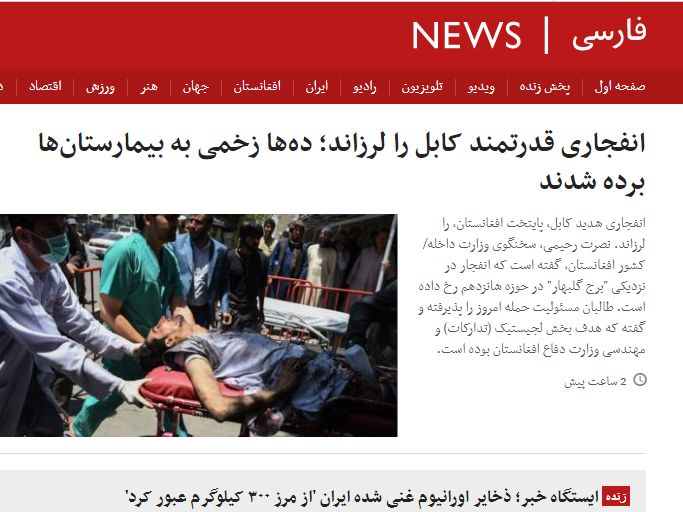
A BBC Persian journalist has called on the United Nations to take action against the harassment of female journalists.
Anahita Shams told the UN Human Rights Council that she and her colleagues face constant attacks online, with a faked pornographic image of one BBC Persian presenter having been sent to their teenage son.
She also told the international body that the spread of fake images and false accusations of “sexual indecency” were the main techniques used to discredit female journalists.
Her comments came after it was revealed earlier this year that Iranian authorities had targeted the families of BBC Persian journalists in attempts to silence London-based reporters working for the outlet, which reaches 13m in Iran despite being banned.
BBC Persian staff are also unable to return to Iran if they wish to visit sick relatives or attend funerals for fear of arrest.
Speaking to the Human Rights Council on Friday, BBC Persian reporter Shams said: “My female colleagues and I have been constantly attacked online with concerted sexual defamation and harassment on several social media platforms.
“One of the main techniques to discredit women journalists is through the spread of fake images online and false information accusing us of sexual indecency to discredit us with our families and the broader public.”
She added that the “particularly gendered nature of attacks on women journalists” had to be acknowledged and called on the UN to take action.
The BBC World Service has submitted an urgent appeal to UN Special Rapporteur on violence against women Dubravka Simonovic and the UNHRC’s working group focused on discrimination against women drawing attention to online harassment faced by female journalists.
It has also passed on new evidence of BBC journalists facing harassment and persecution to the UN, according to the National Union of Journalists.
Lawyers representing BBC World Service said in a statement: “Evidence shows that online abuse is a global phenomenon – female journalists receive about three times as much abuse as their male counterparts.
“The Iranian authorities’ targeting of female journalists online is a particularly extreme and concerning example of this wider trend.
“The online harassment and abuse is intended to silence and intimidate BBC journalists and constitutes a clear attack on the right to freedom of expression and the right to be free from gender-based violence and harassment.”
A study released late last year found that one in every 14 tweets sent to women journalists in the UK and US were abusive or “problematic”.
The research by Amnesty International and developer Element AI discovered that more than 225,000 Twitter mentions of 454 UK and US female journalists were abusive or problematic in 2017.
Picture: BBC Persian
Email pged@pressgazette.co.uk to point out mistakes, provide story tips or send in a letter for publication on our "Letters Page" blog
